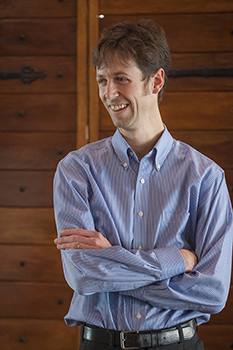Latest News Archive
Please select Category, Year, and then Month to display items
29 March 2023
|
Story Samkelo Fetile
|
Photo Simba Matema
 From left to right: Prof Jean Bernard Lekana-Douki, Director General at the CIRMF; Prof Francis Petersen, Rector and Vice-Chancellor of the UFS; and Prof Jean-Fabrice Yala, Scientific and Technical Director at the CIRMF.
From left to right: Prof Jean Bernard Lekana-Douki, Director General at the CIRMF; Prof Francis Petersen, Rector and Vice-Chancellor of the UFS; and Prof Jean-Fabrice Yala, Scientific and Technical Director at the CIRMF.
The University of the Free State (UFS) recently welcomed senior members from the International Centre for Medical Research in Franceville (CIRMF), Gabon to sign a Memorandum of Understanding (MoU) between the two entities.
CIRMF is a non-profit medical research centre that was established in 1974. Its primary focus is on diagnosing infectious diseases that pose immediate problems in Gabon and the Central African sub-region. The centre is dedicated to improving public health through various initiatives, including the training of Gabonese health executives in doctoral and post-doctoral education.
“The signing of the MoU with CIRMF is a step in the right direction as the UFS continues to strengthen its footprint on the African Continent. This is seminal in driving the university’s internationalisation processes and opening an avenue to expanding research networks, especially in the African continent,” said Bonolo Makhalemele, Coordinator of strategic projects at the Office for International Affairs, UFS.
In the interest of developing broader research collaborations, the CIRMF delegation met with some UFS academics in a series of engagements, particularly in the Health Sciences Faculty and the Natural and Agricultural Sciences Faculty. “The integration of knowledge and practices that emanate from the continent provides opportunities for the co-creation of knowledge that can be shared with the rest of the world,” said Kagiso Ngake, Coordinator for Partnerships, Collaborative Degrees, and Outgoing Mobility at the Office for International Affairs, UFS.
A concrete roadmap was established to formalise the collaborations that resulted from these engagements and will commence as soon as April 2023. “We have laid a solid foundation and are on the way to a strong and rich partnership!” exclaimed Prof Jean Bernard Lekana-Douki, Director General at the CIRMF.
Prof Francis Petersen, Rector, and Vice-Chancellor of the UFS, further highlighted how the newly established partnership with the CIRMF aligns with the mandate of the UFS Vision 130 of expanding the UFS Africa research network.
Stanford University hosts book launch for UFS Prestige Scholar
2015-12-14

Dr Christian Williams, a member of the Vice-Chancellor’s Prestige Scholars Programme, had his book launched by Stanford University. The book called National Liberation in Postcolonial Southern Africa: A Historical Ethnography of SWAPO’s Exile Camps will be available in South Africa early in 2016.
Photo: Sonia Small |
A launch for the much-anticipated book by Dr Christian Williams from the University of the Free State (UFS) was sponsored by the Humanities Center and the Center for African Studies of Stanford University in the USA, among others.
The launch of the book, National Liberation in Postcolonial Southern Africa: A Historical Ethnography of SWAPO’s Exile Camps, coincided with the 40th anniversary of Angola’s independence.
The book was published by Cambridge University Press in September 2015, and the launch at Stanford was on 16 November 2015.
This groundbreaking study, which will be available in South Africa early next year, has already been lauded for its invaluable contribution and the depth of its scholarship. The author is a senior lecturer in the Department of Anthropology of the UFS, and member of the Vice-Chancellor’s Prestige Scholars Programme (PSP). He is a former Fulbright scholar, and holds a doctorate from the University of Michigan in History and Anthropology.
National Liberation in Postcolonial Southern Africa follows members of the South West Africa People's Organization (SWAPO) through three decades of exile in Tanzania, Zambia, and Angola.
It highlights how different Namibians experienced exile, as well as the tensions that developed within SWAPO as Namibians encountered one another while officials asserted their power and protected their interests.
It also follows the return of Namibians who lived in exile to post-colonial Namibia, examining the extent to which divisions and hierarchies that emerged in the camps still continue to shape Namibians today.